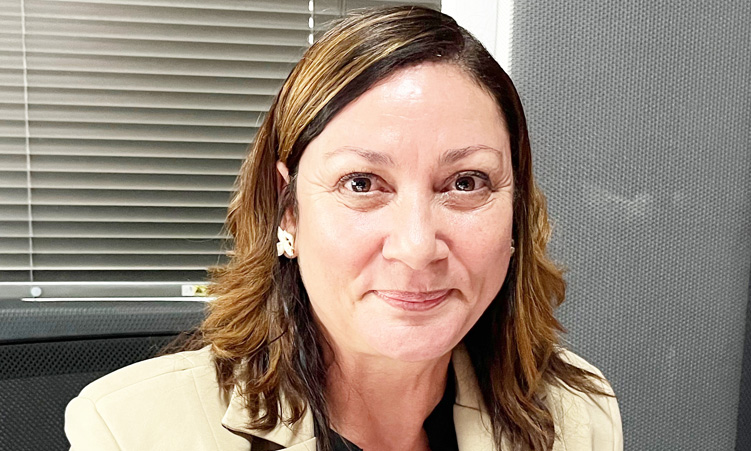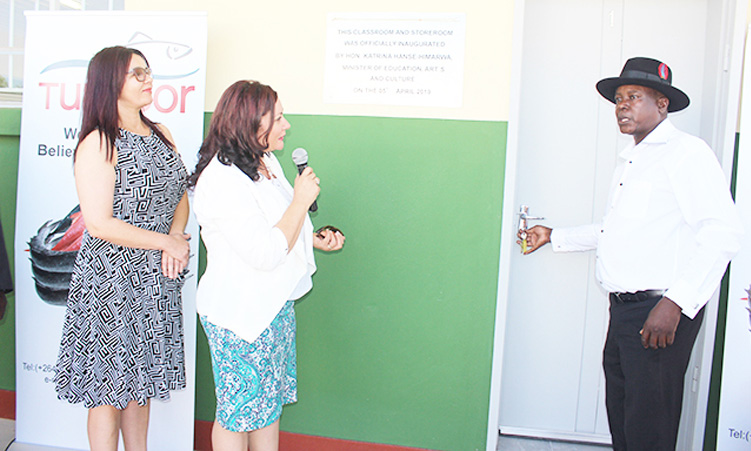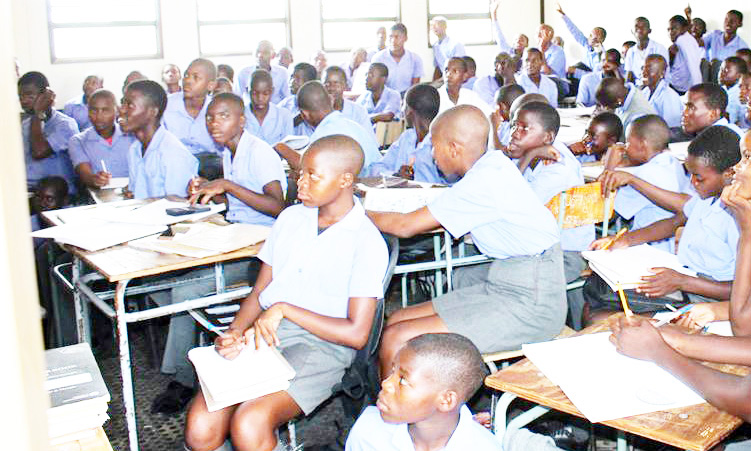Sanet Steenkamp (SS) has been appointed as minister of the country’s largest-ever ministry, overseeing education, innovation, youth, sport, arts and culture under president Netumbo Nandi-Ndaitwah’s administration.
Steenkamp previously served as executive director of education, arts and culture, and now takes charge of a portfolio that carries the biggest national budget – N$24.8 billion for the 2025/26 financial year.
This ministry will also oversee critical sectors shaping Namibia’s future, with a total of N$76.1 billion earmarked over the medium-term expenditure framework.
Steenkamp this week spoke to Desert FM about her vision for the ministry, the challenges ahead, and how she plans to navigate this unprecedented portfolio.
Desert FM: This is clearly the biggest ministry in the history of the country since independence. How do you intend to fulfil your mandate with such a broad portfolio?

SS: Firstly, as a minister and a deputy minister, you must understand what your mandate entails. We, of course, have what we call functionaries or entities. We had three entities, each with its own strategic plan.
There are also the guiding documents and policies. You have your National Development Plan 6 (NDP6), you have your strategic plans for each entity that were crafted already, and then you’ve got Swapo’s manifesto implementation plan. Four of the seven key priority areas fall under our ministry.
Now we have to form one integrated business and strategic plan for the next six years, which is aligned to the NDP6. You also have already established organisational structures within the ministry.
Remember, we are not necessarily new to certain mandates, but we have structures in place. We’ve got executive management in place who meet on a regular basis. We have briefing sessions, we have scheduled meetings on a technical level that run throughout the week.
We have to make sure we don’t necessarily need time to settle in. You need time to understand your mandate and then commit with your team to carry out that mandate and have a high-performance culture in the ministry.
‘NO ROOM FOR PERSONALITIES’
Desert FM: With little time to settle in, how will you ensure there is harmony within the ministry between the various portfolios?
SS: We need to be open and adjust. We are lifelong pupils. We need harmonious working relationships. First and foremost, there’s no room in our ministry for personalities.
When I received my appointment letter, at the same event, the deputy minister learned that he was joining me. He bent forward and said: “My minister.”
Immediately, the respect was established.
We had our first meeting, two hours long, on a Sunday. Right after, we called all the directors, deputy executive directors (EDs), and the EDs for these responsible entities together, and we sat with them.
We were very clear about what we envisage. We shared the government’s vision, and we also shared our expectations on how we will work together.

I can assure you we have a very strong team. We have people who are ready to bring their expertise, best practices, experience, and qualifications. They are well established in their various mandates. The beauty of it all is that we have already started identifying the synergies.
Our transition starts off with the directorate of planning, director general services, directorate of human resources, and finances. So, already, we are bringing the teams together. That has started on a technical level.
For example, in youth development, there are so many activities that are integrated into adult education and quality assurance. We have innovation and entrepreneurship. There’s a lot of overlap.
Desert FM: So it was sensible to put all of these portfolios together?
SS: Absolutely. Her excellency had the foresight that we needed to consolidate these ministries into one because of the holistic development of the child, the young person, the student, and the person.
‘INHERITING SNAKES’
Desert FM: And with that consolidation also comes inheriting whatever came with the other portfolios you weren’t in charge of previously, right? Looking at sport and higher education, there were many controversies throughout the last administration. How are you planning to approach these?
SS: There’s a saying that when you inherit a farm, you also inherit the snakes that come with it. With contentious and controversial matters, with issues of high public interest, we have decided on a professional approach.
We acknowledge that many from different sectors wish to advise, and I appreciate that. However, we are our own people.
We will handle this professionally, ensuring we have all the details, documentation, and facts before us. We will remain objective and neutral, focusing only on what is within our legal frameworks.
After thorough consultation, we will act. Give us a bit of time. There’s no time for settling in, as I said.
We are already running with our mandate while still in the transitioning phase. But I can assure you we will tackle issues head-on.
There will be engagement, no victimisation, and no discrimination against any entity or person. We will focus on facts.
The more I read in the evenings and early mornings, the more I realise how much there is to learn, contribute, and gain.
We are excited, but we are not saying it will be easy or without obstacles. However, we will be able to handle any challenges that arise.
Stay informed with The Namibian – your source for credible journalism. Get in-depth reporting and opinions for
only N$85 a month. Invest in journalism, invest in democracy –
Subscribe Now!










